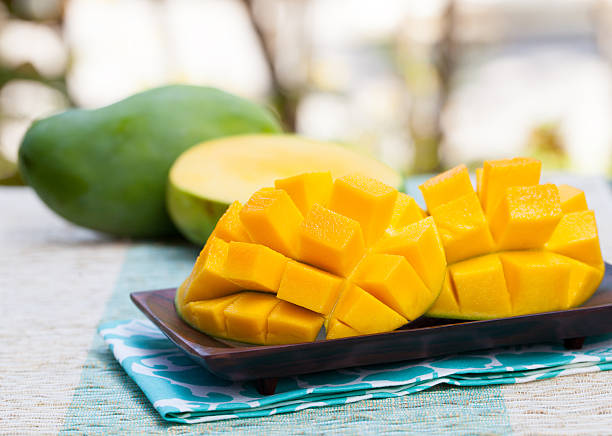Magnesium is the fourth most abundant mineral in your body and the second most common intracellular cation (positively charged ion) after potassium
Magnesium is required for the healthy function of most cells, especially your heart, kidneys, and muscles. A lack of magnesium will impede your cellular metabolic function and deteriorate mitochondrial function
Magnesium resides at the center of the chlorophyll molecule, so if you rarely eat leafy greens, you’re likely not getting all the magnesium you need unless you’re supplementing
Some researchers insist the magnesium RDA is inadequate, warning that many suffer from subclinical magnesium deficiency that can compromise their cardiovascular health
Evaluate your signs and symptoms of magnesium insufficiency and make sure you eat magnesium-rich foods and/or take a magnesium supplement, balanced with vitamins D3, K2, and calcium. Low potassium and calcium are also common laboratory signs indicating a magnesium deficiency
How Magnesium Benefits Your Body
Magnesium is involved in more than 600 different biochemical reactions in your body, which play important roles in:
Creation of adenosine triphosphate (ATP), the energy currency of your body
Metabolism of calcium, potassium, zinc, phosphorus, iron, sodium, hydrochloric acid, acetylcholine and nitric oxide, as well as 300 enzymes, and the activation of thiamine.
Magnesium is also required for DNA, RNA and protein synthesis and integrity
Mitochondrial function and health. Magnesium is required both for increasing the number of mitochondria in your cells and for increasing mitochondrial efficiency
Regulation of blood sugar and insulin sensitivity, which is important for the prevention of Type 2 diabetes
(In one study,18 prediabetics with the highest magnesium intake reduced their risk for blood sugar and metabolic problems by 71 percent)
Relaxation of blood vessels and normalizing blood pressure
Detoxification, including the synthesis of glutathione and likely lowering the damage from EMF by blocking voltage-gated calcium channels
Muscle and nerve function, including the action of your heart muscle
Antioxidant defense via a number of different mechanisms, including anti-inflammatory activity and support of the endothelial and mitochondrial function
Maintenance of ionic gradients — keeping intracellular sodium and calcium low and potassium high — and maintaining cellular and tissue integrity
Mental and physical relaxation; stress antidote
Signs and Symptoms of Magnesium Deficiency
Common signs and symptoms of magnesium insufficiency This will also help you gauge how much magnesium you need to resolve your deficiency symptoms.
Seizures; muscle spasms, especially “Charley horses” or spasms in your calf muscle that happen when you stretch your leg and/or eye twitches
The Trousseau sign.25 To check for this sign, a blood pressure cuff is inflated around your arm. The pressure should be greater than your systolic blood pressure and maintained for three minutes.
By occluding the brachial artery in your arm, spasms in your hand and forearm muscles are induced.
If you are magnesium-deficient, the lack of blood flow will cause your wrist and metacarpophalangeal joint to flex and your fingers to adduct. For a picture of this hand/wrist position, see Wikipedia26
Numbness or tingling in your extremities
Low potassium and calcium levels
Insulin resistance
Increased number of headaches and/or migraines
High blood pressure, heart arrhythmias and/or coronary spasms
Low energy, fatigue and/or loss of appetite

What's most exciting about summers is the availability of mangoes everywhere and we cannot help but binge on them. While this sweet and juicy fruit can be eaten as it is, there are a lot of people who love to relish the fruit in the form of shakes. A glassful of chilled mango shake is not just refreshing but also replenishes your system in this sweltering heat. However, the presence of refined sugar in the shake can reverse the goodness, considering it may lead to obesity, diabetes and other health problems, if consumed on a daily basis. The amount of calories in mango shake can be higher than the fruit itself. Let's see how many calories are there in a glassful of mango shake along with pros and cons that come with it.
Calories in Mango Shake
According to Delhi based Dietitian Drishti Parekh, following are the calories and nutrients in mango shake:
In one glass of mango shake without sugar has approximately 171 kcal.
Carbohydrates: 16.5 grams
Protein: 7 grams
Fats: 8.6 grams
One full glass of mango shake with sugar contains 240 kcal.
Carbohydrates: 35 grams
Protein: 8.2 grams
Fat: 7.8 grams
Should You Be Drinking Mango Shake?
According to the book, The Complete Book of Ayurvedic Home Remedies by Dr. Vasant Lad, combination of fruits and milk does not go well. Poor food combinations can cause problems like indigestion, acidity and heartburn among others. Dietitian Drishti Parekh agrees, "One should consume mango shake only when the mango is completely ripe. Ayurveda suggests that sour fruits and milk shouldn't be combined, as it creates heaviness in the body and slows down the mind. It's always better to eat things individually. It's okay to have a glassful of mango shake occasionally, but not on a daily basis. If you wish to enjoy mango shake, combine your fruit with nut-based milk like almond milk, cashew milk, et al."
It is okay to enjoy mango shake occasionally, preferably without sugar. Sugar only adds up to the calories, which may not be suitable for those looking to lose weight and diabetics. Try and enjoy the fruit as it is, in case the combination of milk and mangoes doesn't suit you.
Here are some recipes that use mango in some of our favourite beverages:
1. Mango Mastani
Recipe by Chef Prasad Metrani
Mango mastani is a thick mango milkshake with ice cream scoops topping it. All you need is mango pulp, milk, sugar, cardamom, almonds and ice cream.
2. Aam Ras Recipe
Recipe by Niru Gupta
Mango pulp, crushed ice and milk; a blissful mix that will help you get some relief from the excessive heat.
3. Mango Smoothie
Recipe by Chef Manju Malhi
A refreshing and cooling drink with the goodness of mango, milk and yogurt; this recipe is bound to make you fall in love the beverage.
We know summers are making you want to relish mango shake, but moderation is the key. Enjoy the sweet summery goodness of mangoes without hampering your tummy!
1. Increased Energy
2. Improved Digestion
3. Heartburn
4. Vitamin B6
5. Skin Conditions
6. Minerals
7. Improves Mood and Reduces Stress










